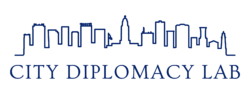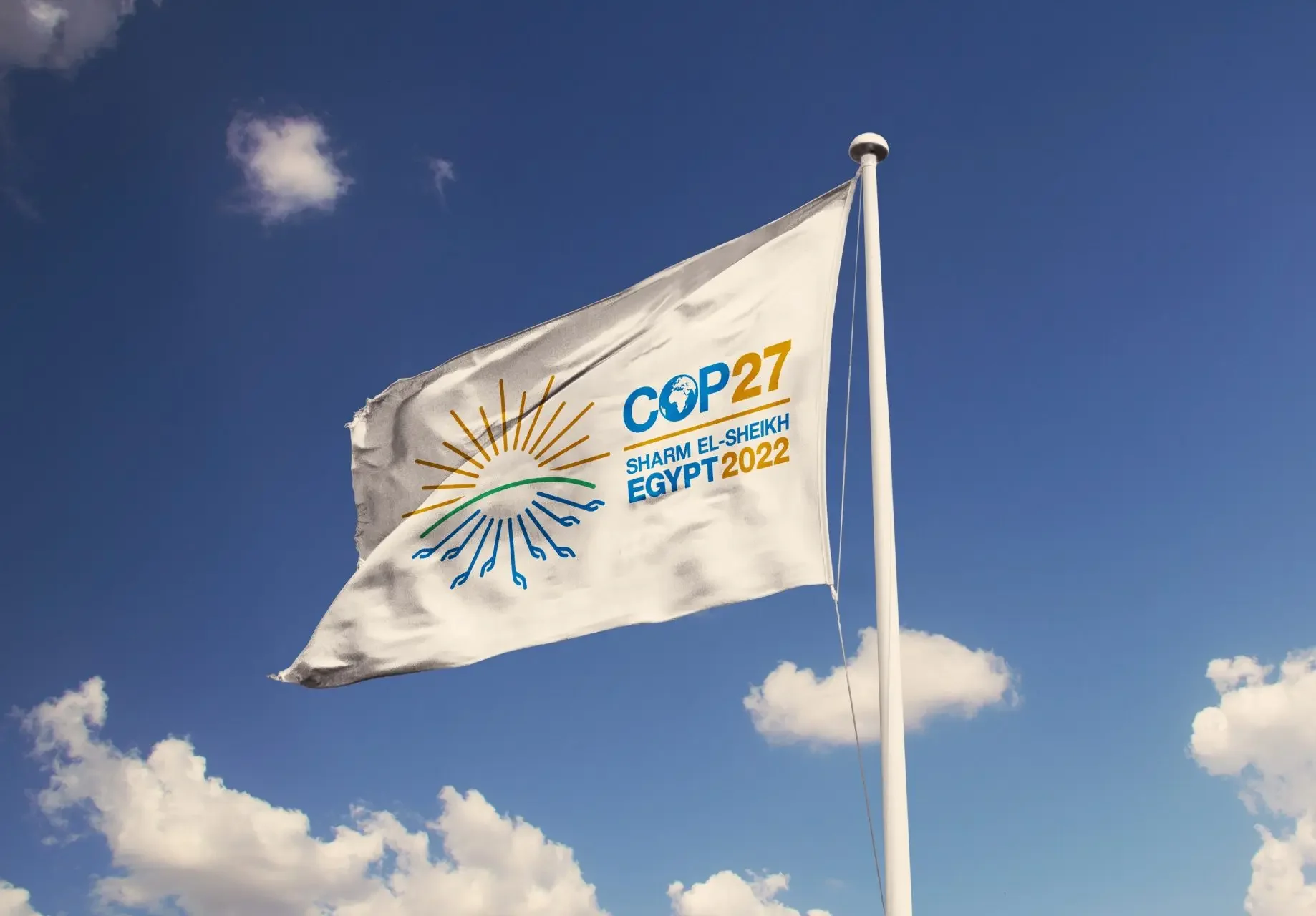In consideration of their extensive efforts to deploy their unique tools to combat the causes and respond to the consequences of climate change, cities have emerged as indispensable actors in climate action worldwide.
Unsurprisingly, this is as much due to cities’ ability to foster participatory responses to local impacts of local change as it is to their international coordination in modeling and disseminating the approaches that have proven most effective.
To explore such action, give it new impetus, and scale it up through a multi-actor approach, the City Diplomacy Lab, in partnership with the International Association of Francophone Mayors (AIMF), ACE Observatory, and Columbia University’s Climate School, is co-organizing three hybrid events at the upcoming 2022 United Nations Climate Change Conference (COP27) in Sharm el-Sheikh.
Climate empowerment and city diplomacy. Exploring the potential of a thriving alliance
In partnership with AIMF – International Association of Francophone Mayors
📍Multilevel Action Pavilion, Blue Zone
🗓 Tuesday, November 8 at noon, Egypt Standard Time (UTC+2)
As the impact of climate change turns out to be increasingly dramatic, the need to motivate, coordinate and strengthen the action of various actors is still essentially an unrealized goal.
However, a specific article in the Paris Agreement (Article 12) is dedicated to this imperative, known as Action for Climate Empowerment (ACE).
Although the implementation of this article is often partial at the national level, the climate action of a growing number of cities around the world aligns with these principles.
Indeed, municipalities are using their very nature as the political institution closest to citizens to carry out such work capable of creating coherence in climate action while strengthening and reinforcing operational collaboration between citizens, climate activists, and the city’s economic, social and cultural actors. The result is a city in which the fight against climate change becomes an engine of cohesion, well-being, social justice, and shared innovation for the benefit of the entire urban community.
What is emerging is a methodology that is easily replicable and adaptable to specific contexts. As a matter of fact, city diplomacy is increasingly spreading such an approach to cities of all sizes, geographic coordinates, and socioeconomic conditions.
The International Association of Francophone Mayors (AIMF) and the City Diplomacy Lab at Columbia Global Centers | Paris are hosting a panel discussion at COP27’s Multilevel Action Pavilion to discuss the scope of this approach in cities using it and its present and future impact on the global fight against climate change.
Panelists:
- Ms. Souad Abderrahim, Mayor of Tunis
- Ms. Fatimetou Abdel Malick, President of the Regional Council of Nouakchott
- Dr. Michèle Rubirola, Deputy Mayor of Marseille
- Mr. Dan Lert, Deputy Mayor of Paris
- Dr. Isatis M. Cintrón, Co-director, Research, ACE Observatory
- Dr. Lorenzo Kihlgren Grandi, Director, City Diplomacy Lab, Columbia Global Centers | Paris
Passcode: 397610
Cities and universities. An alliance for sustainable development
In partnership with AIMF – International Association of Francophone Mayors
📍Francophonie Pavilion, Blue Zone
🗓 Tuesday, November 8 at 3 p.m., Egypt Standard Time (UTC+2)
As the global climate crisis deepens, cities and universities demonstrate unprecedented engagement.
First, by their dual nature as the political institution closest to citizens and the primary provider of public services, cities are committed to addressing change through the imperatives of sustainability, participation, and equality. The same principles are guiding the actions of a growing number of universities, which are also eager to contribute in terms of research and training on both the characteristics of climate change and the best tools for governing and countering it.
This convergence of intentions favors a growing synergy between the two actors. With the participation of prominent representatives from municipalities and universities, this roundtable, organized by the International Association of Francophone Mayors (AIMF) and the City Diplomacy Lab at Columbia Global Centers | Paris, aims to explore the nature and the local and global impact, present and future, of their collaboration. The event will take place in French.
Panelists:
- Ms. Souad Abderrahim, Mayor of Tunis
- Dr. Michèle Rubirola, Vice Mayor of Marseille
- Prof. Slim Khalbous, Rector, Agence Universitaire de la Francophonie
- Prof. Etotépé A. Sogbohossou, Dean, Environment Department, Senghor University, Alexandria
- Prof. Patricia Crifo, Director, Economics for Smart Cities and Climate Policy Master’s Degree, École Polytechnique, Paris
- Ms. Mélody Braun, Senior Staff Associate, International Research Institute for Climate and Society (IRI), Columbia University’s Climate School
- Dr. Lorenzo Kihlgren Grandi, Director, City Diplomacy Lab, Columbia Global Centers | Paris
ACE City Champions: an equitable and participatory path towards sustainable cities
In partnership with the ACE Observatory and Columbia University’s Climate School
📍SDG Pavilion, Blue Zone
🗓 Tuesday, November 15 at 6:30 p.m., Egypt Standard Time (UTC+2)
The need for urban sustainability transformation underpins many of the United Nations Sustainable Development Goals (SDGs) and is mentioned in the Paris Agreement as crucial to fostering country-driven capacity building.
City governments, through their civic mandates and long-term planning perspectives, are critical institutions to address climate impacts, decarbonize buildings, infrastructure, and mobility, ensure food security, transition to renewable energy, and build more resilient and sustainable communities. Cities are both an input to the problem and the key to a solution.
Action for Climate Empowerment (Art 12 of the Paris Agreement) calls on national and subnational governments to build a comprehensive strategy, including strong climate governance, participatory processes engaging civil society, and capacity building is key to an economic transition that addresses the climate crisis while reducing poverty and inequality and maintaining citizens’ trust at the same time.
This event, organized by the ACE Observatory, Columbia University’s Climate School, and City Diplomacy Lab, will feature locally-led examples of inclusive climate governance and capacity building by mayors, networks, and non-party stakeholders. It will also launch and present how the ACE City Champions Initiative can help strengthen the institutional capacity to capitalize on the coordination through those ACE efforts.
Panelists:
- Ms. Anne Hidalgo, Mayor of Paris (TBC)
- Mr. Yunus Arikan, Director of Global Advocacy, ICLEI
- Ms. Mélody Braun, Senior Staff Associate, International Research Institute for Climate and Society (IRI), Columbia University’s Climate School
- Dr. Isatis M. Cintrón, Co-director, Research, ACE Observatory
- Mr. Grégoire Merrheim, Officer, International Relations Department, City of Paris
Registration coming soon

